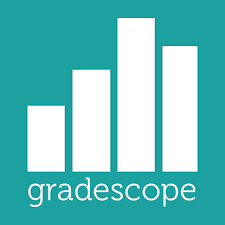CSC 561: Neural Networks and Deep Learning (Spring 2025)
Description
Recent advances in Neural Networks and Deep Learning have made it possible to develop computational solutions to complex tasks usually performed by humans. Nowadays, well-trained Deep Learning architectures are able to achieve comparable or superhuman performance in complex tasks such as image classification/recognition, natural language understanding, speech recognition, machine translation, game playing, autonomous driving, and so forth.
In this course students will learn the fundamentals of deep learning architectures, including convolutional networks, recurrent neural networks, graph neural networks, transformers, and generative AI. Along the way, this course will also provide a basic introduction to basic machine learning topics, such as, supervised/unsupervised learning, gradient descent, generalization and overfitting, regularization, and model selection.
The course is open to advanced undergraduate students and graduate students. Students are expected to have good programming skills (preferably Python) and taken courses on machine learning, probability, statistics and linear algebra.
Course Info
- Instructor: Prof. Marco Alvarez
- Lectures: TTh 2-3:15p @ CBLS 152
- Office Hours: T 3:30-4:30p @ Tyler 255
Support Tools and Technology
Students enrolled in this course are required to have access to the following tools to enhance their learning experience and facilitate communication.
 Ed Discussion: hosts forums for discussions, polls, and quizzes, providing opportunities for students to interact with classmates and instructors, share insights, and test their understanding of key concepts [Ed Help].
Ed Discussion: hosts forums for discussions, polls, and quizzes, providing opportunities for students to interact with classmates and instructors, share insights, and test their understanding of key concepts [Ed Help].
 Gradescope: simplifies assignment submissions and grading, ensuring clear and consistent feedback from instructors. Students can review their graded work, visualize feedback points, and gain insights into their strengths and areas for improvement [Gradescope Help Center].
Gradescope: simplifies assignment submissions and grading, ensuring clear and consistent feedback from instructors. Students can review their graded work, visualize feedback points, and gain insights into their strengths and areas for improvement [Gradescope Help Center].
Effective utilization of these tools is key to optimize the learning experience. Students should familiarize themselves with each platform, actively participate in Ed Discussion and submit assignments through Gradescope by the designated deadlines.
All students are automatically registered to use the above tools. To ensure seamless access, students should rely on their primary eCampus email address as their login for all three platforms.
Recommended Textbooks
- The Science of Deep Learning, I. Drori.
- Deep Learning: Foundations and Concepts, C. Bishop.
- Deep Learning, I. Goodfellow, Y. Bengio, A. Courville.
- Introduction to Deep Learning, E. Charniak.
- Dive into Deep Learning, A. Zhang, Z. Lipton, M. Li, A. Smola.
- Deep Learning with Python, F. Chollet.
Grading
- Homework Assignments (30%)
- Quizzes (40%)
- Final Project (30%)
Final letter grades are determined based on the cutoffs below. The final letter grade corresponds to the highest cutoff value that is less than or equal to the final grade. For example, a final grade of 93.5 would result in an A-.
A A- B+ B B- C+ C C- D+ D F
94 90 87 83 80 77 73 70 67 60 0
Homework Assignments
Homework assignments are individual work, unless explicitly stated otherwise in the assignment's instructions. Students have approximately 7-10 days to complete each assignment, with specific due dates indicated on the course website.
Late submissions are not accepted. To maximize learning and gain valuable feedback, students are strongly encouraged to bring their code, solutions, or questions to the instructor's office hours prior to the due date.
Quizzes
Quizzes will be administered throughout the semester to assess students' understanding of the course material. Students will be given specific papers to read and understand, and the quizzes will be based on these papers. Electronic devices are strictly prohibited during the quizzes.
Final Project
This project is completed in teams of two students. Teams can propose their own project topic or ask the instructors to provide potential ideas. Most projects require auxiliary reading and consistent programming effort throughout the semester. Exceptional projects are eligible for significant extra credit. Each team delivers a progress report, a final report, and a live presentation.
Academic Integrity and Large Language Models (LLMs)
While collaborative discussions and peer learning are encouraged for gaining insights, students must prioritize academic integrity, particularly concerning their written work and source code. Sharing solutions with others, copying another student's work, or using uncredited LLM-generated code is strictly prohibited. These actions constitute plagiarism, a serious offense with significant consequences outlined in the University's Academic Honesty Procedures.
Students are encouraged to employ LLMs responsibly and ethically when utilizing them for homework assignments. While LLMs are powerful tools to aid in research, understanding, and generating content, it is imperative that students produce original work in their assignments. Simply copying and pasting content generated by LLMs without proper understanding or attribution constitutes academic dishonesty.
Students should use LLMs as aids to enhance their comprehension of the subject matter, providing insights and ideas that contribute to the development of their own work.
Disability Accommodations
Any student with a documented disability is welcome to contact the instructor as early in the semester as possible to arrange reasonable accommodations. As part of this process, students are advised to initially contact the Disability Services for Students Office, located in room 302 of the Memorial Union (401-874-2098).
Religious Holidays
It is the policy of the University of Rhode Island to accord students, on an individual basis, the opportunity to observe their traditional religious holidays. Students desiring to observe a holiday of special importance must provide written notification to the instructor.